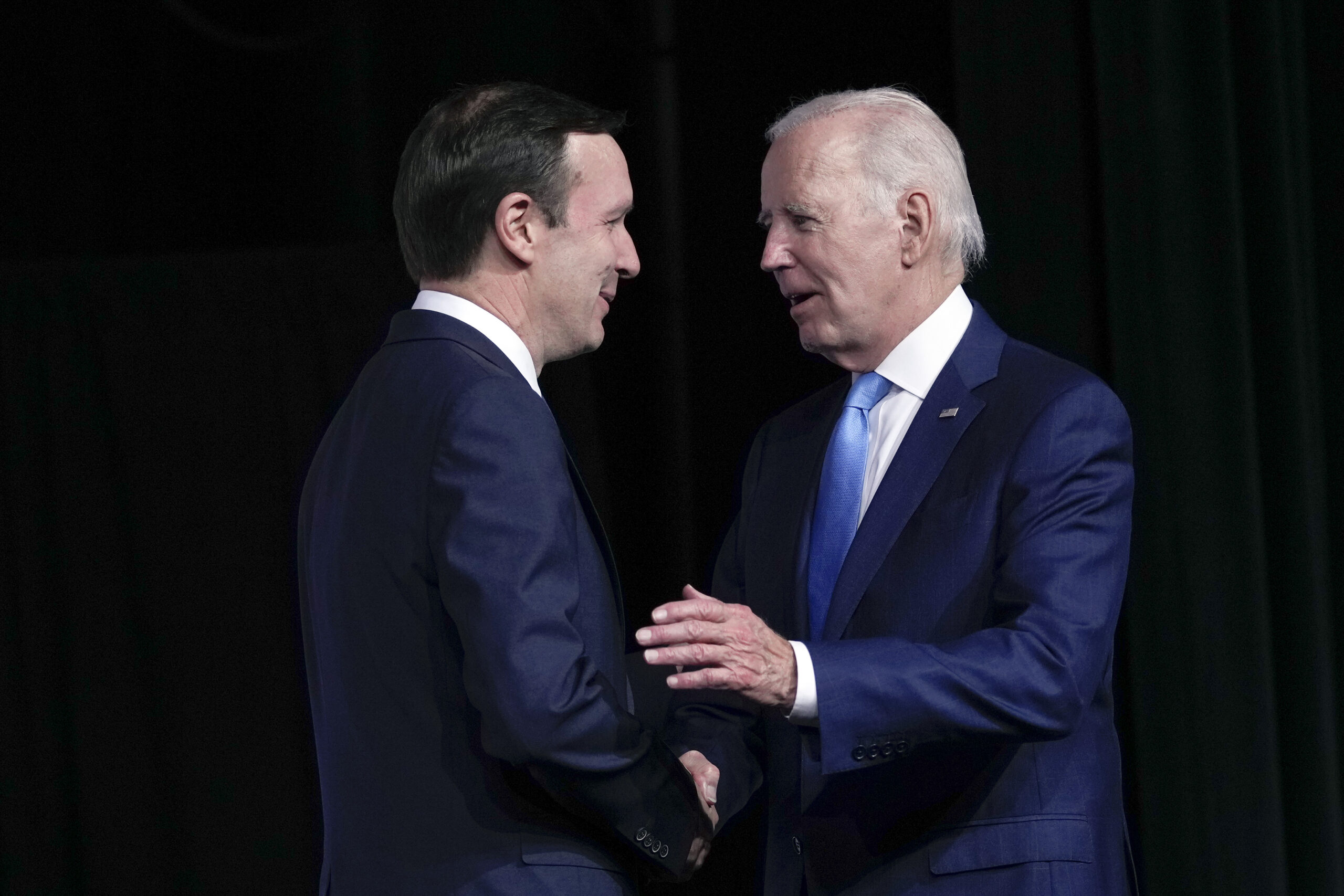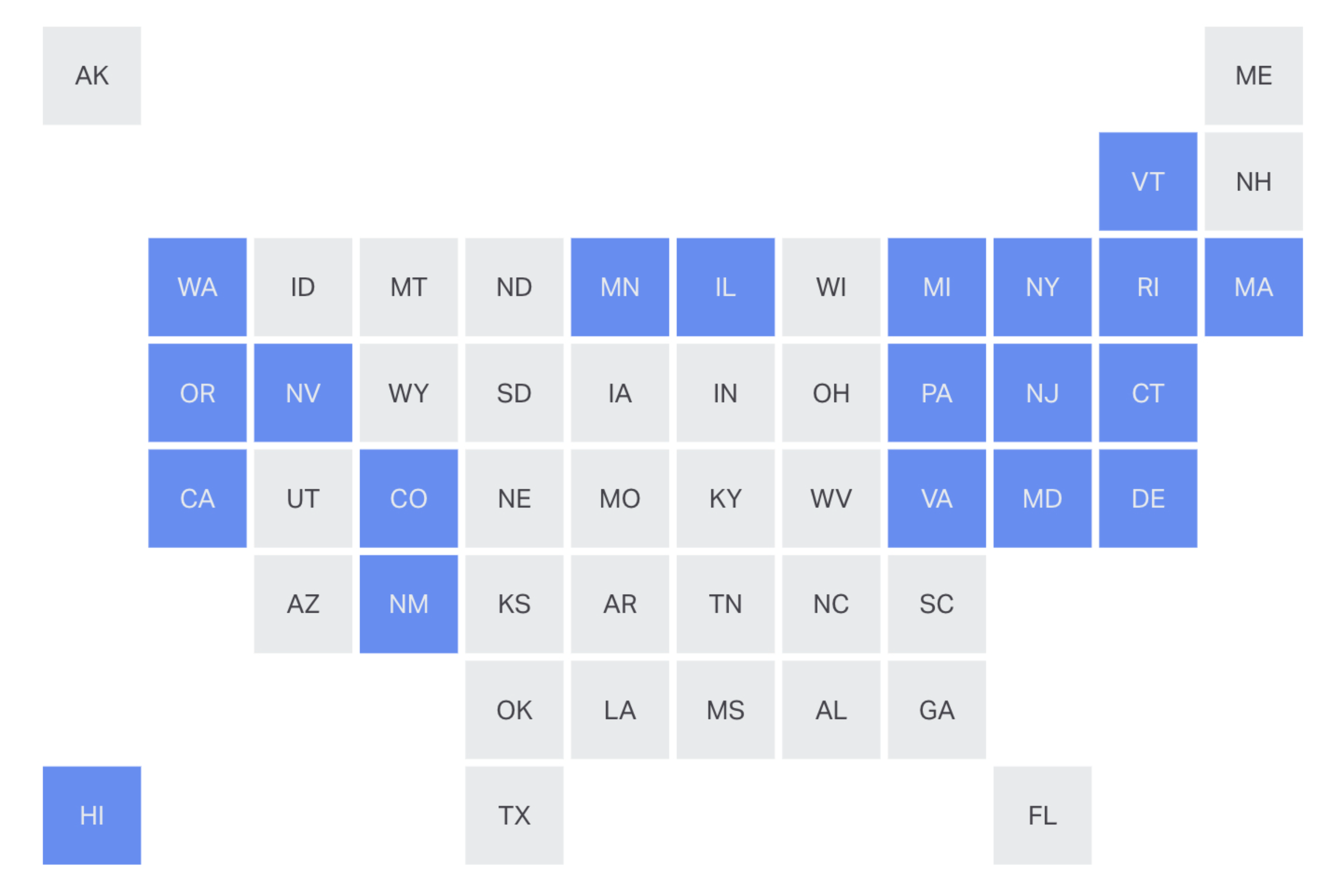It’s a tragic reality: Many of America’s mass shooters are young adults. According to the Violence Project, from 1966 to the present, the median age of perpetrators of shootings at K-12 schools is 18. And The New York Times reports that six of the country’s nine deadliest mass shootings between 2018 and June 2022 were carried out by people younger than 21.
Academics and law enforcement officials have largely attributed the trend to lenient state and federal regulations that allow 18-year-olds to purchase weapons. Indeed, federal age restrictions are relatively lax: Licensed firearm dealers can’t sell handguns to those under 21, but for long guns like rifles and shotguns, the age is 18. And those restrictions only apply to licensed dealers; private sellers can sell handguns to those over 18, and long guns to teens under 18.
It’s for these reasons that many gun reform advocates have pushed for laws to address the intersection of age and gun violence. There have been some successful efforts in states like New York, which raised the age to own semiautomatic firearms to 21 after the 2022 Buffalo supermarket and Uvalde mass shootings. On the federal level, a push last year to raise the age to 21 to purchase semiautomatic rifles failed, but lawmakers in Congress reached a compromise: They created an enhanced background check process for people under 21 who are looking to buy firearms from licensed dealers. The enhanced checks, which require the FBI to do a deeper inquiry than in standard background checks, began rolling out in some states in November 2022 and went nationwide in January.
So far, the results look promising. New FBI data obtained by The Trace shows that enhanced background checks have stopped hundreds of young adults who shouldn’t have guns from buying them.
Since the rollout began last year through July 11, the FBI’s National Instant Criminal Background Check System, or NICS, conducted 116,349 background checks on potential purchasers between 18 and 20 years old. Of those, 1,100 checks resulted in a denial. And according to the FBI, some 23 percent of those blocked purchases — or 253— wouldn’t have been flagged under the old system.
That might seem like a small number of denials, considering the magnitude of gun purchases in the United States. That’s fair. But that’s still hundreds of unlawful and potentially dangerous gun purchases that otherwise would have proceeded if this new process wasn’t created.
Think about it this way: If the enhanced checks hadn’t been in place, nearly a quarter of denied purchases made by 18- to 20-year-olds would have proceeded. And gun purchases aren’t often denied; the overall NICS denial rate is around 1.5 percent historically for all gun purchases, regardless of age. That said, the FBI didn’t track denials by age before the enhanced checks went into effect, so it’s difficult to say with certainty whether the total number of denials for those 18 to 20 increased because of the new system, an agency spokesperson said.
Regardless, the enhanced system has garnered support from both Democratic and Republican politicians since it launched.
“It’s focused on that age cohort that is disproportionately represented in some of the mass shootings that we’ve seen around the country, and it seems to be working,” Senator John Cornyn, a Republican from Texas, said during a Senate committee hearing in March. The rollout of the enhanced process has also received praise from President Joe Biden and Senator Chris Murphy, a Democrat from Connecticut.
The enhanced background checks are no small lift for the FBI. While the standard NICS background check process involves running identifying information through a matrix of databases that contain criminal and mental health records, the enhanced process goes further, requiring NICS to directly contact state and local law enforcement, as well as state and local courts. This proactive outreach aims to uncover potentially disqualifying records that may not have been added to the databases used by NICS, including those held by state and local custodians of mental health records or juvenile courts — information that typically doesn’t factor into the standard background check.
In addition, the Safer Communities Act effectively created a waiting period for young people who wish to buy guns by giving the FBI’s NICS division 10 days to finish the background check investigation. NICS has three days to begin its outreach, but if any questionable findings emerge, they have an additional seven days for further investigation before the sale can proceed. That’s opposed to a three-day limit for a standard background check for someone 21 and over (though most checks deliver a decision instantaneously), after which a sale can proceed even if NICS hasn’t delivered a decision.
That extended time frame functionally means that no one under 21 can enter a licensed gun store and leave that same day with a firearm. Given that research has shown that waiting periods of even a few days may significantly reduce firearm homicide rates, that aspect of the enhanced checks alone could prevent some shootings.
It’s not a comprehensive solution, though. The enhanced checks aren’t a stand-in for universal background checks: Young people in some states can still buy guns from private sellers without undergoing a check at all. And record-keeping practices for juvenile criminal and mental health records vary by state, even by county.
A background check, no matter how detailed, isn’t going to prevent all gun violence. But it’s one tool to prevent guns from ending up in the hands of people who shouldn’t have them.
News You Can Use
Americans Agree on Effective Gun Policy More than We’re Led to Believe: According to a new nationally representative survey, people across the political spectrum broadly support gun violence prevention policies like red flag, safe storage, and permit-to-purchase laws. The survey from researchers at Johns Hopkins also showed strong support from gun owners.
Next Round of Michigan Gun Safety Legislation To Focus on Domestic Violence, Suicide Prevention: After passing universal background checks and a red flag law this spring, Michigan lawmakers aren’t done. Democrats in the state plan to introduce another set of gun safety bills later this year, Michigan Advance reports.
Republican Indianapolis Mayoral Candidate Promises Gun Control: It’s not normally GOP candidates who push gun reforms, but in Indianapolis, that’s the case. Jefferson Shreve, who’s looking to unseat current Democratic Mayor Joe Hogsett, said he wants to stop permitless carry, ban assault-style weapons, and raise the age to purchase all guns to 21. That’s the same set of policies Hogsett got passed through the city council earlier this year, but the policies aren’t enforceable under Indiana’s preemption law.
Oregon’s New Gun Laws Don’t Violate the Second Amendment: A Trump-appointed judge ruled that Oregon’s strict gun safety laws are constitutional. The regulations, passed by voters last fall, include a ban on high-capacity magazines and requiring a permit to purchase a firearm. In her ruling, Judge Karin Immergut found the regulations to be consistent with “the nation’s history and tradition.”


